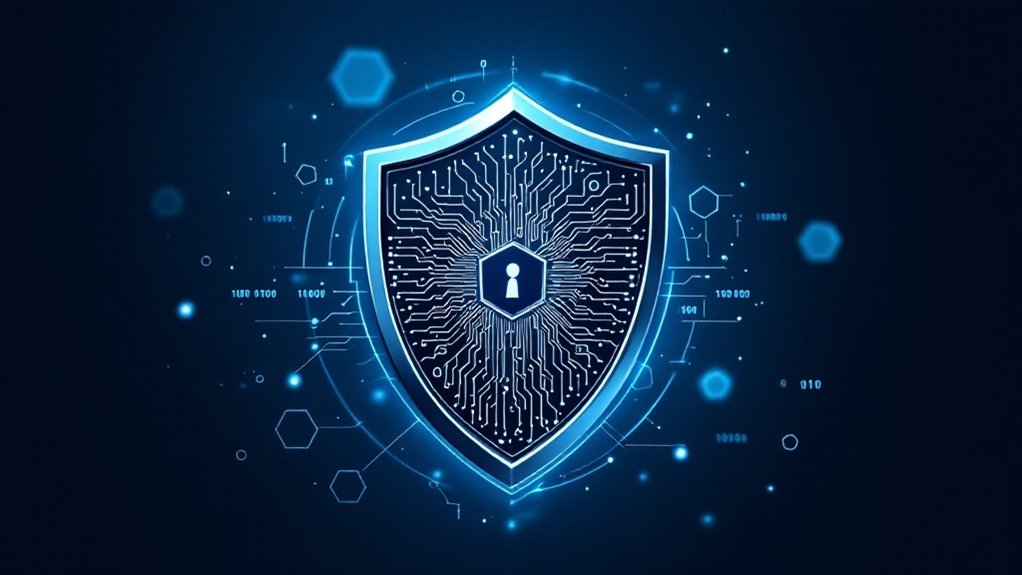The Certified Information Security Manager (CISM) certification, issued by ISACA, represents a globally recognized credential in information security management, held by over 48,000 professionals worldwide. This ANSI-accredited certification validates expertise across four fundamental security domains, commanding average salaries of $148,680 in the U.S. Organizations report a 70% increase in job performance among CISM-certified professionals, who must maintain their credentials through continuing education. Understanding CISM’s full impact reveals its critical role in modern cybersecurity leadership.

Information security’s most prestigious credential, the Certified Information Security Manager (CISM) certification, has emerged as a critical differentiator for professionals seeking to advance their careers in cybersecurity management. Issued by ISACA, a globally recognized association, CISM has validated the expertise of over 48,000 professionals worldwide, establishing itself as an ANSI-accredited certification under ISO/IEC 17024:2003 standards.
The certification’s impact on career advancement is substantial, with CISM holders commanding impressive salaries ranging from $136,000 to $172,000 in the United States. Certification Magazine reports an average salary of $148,680, as organizations report a 70% increase in on-the-job performance among certified professionals. This certification proves particularly valuable for those pursuing executive positions, such as Chief Information Security Officer (CISO) roles. The comprehensive exam consists of 150 multiple-choice questions covering essential security management domains. Professionals must maintain their credentials through continuing professional education to ensure ongoing expertise in the field.
CISM certification drives remarkable career growth, with certified professionals earning up to $172,000 and showing significant performance improvements in executive security roles.
CISM’s extensive coverage of four key domains guarantees professionals possess both technical proficiency and management capabilities. The certification validates practitioners’ abilities to align security initiatives with business objectives, develop strong security programs, and implement effective risk management strategies. This broad scope makes CISM holders particularly valuable to organizations seeking to meet compliance requirements and improve their security posture.
The certification’s emphasis on continuous professional development guarantees practitioners remain current with evolving security practices. Through ISACA’s professional network and resources, certified individuals engage in ongoing education, strengthening their problem-solving capabilities through real-world scenarios and maintaining their expertise in this rapidly changing field.
CISM certification holders excel at bridging the communication gap between technical security requirements and business objectives, optimizing security investments, and integrating security measures into business processes. Their improved incident management capabilities contribute to stronger organizational resilience against cyber threats, as their strategic approach to security program development ensures efficient resource allocation and thorough risk mitigation strategies.
These skills prove invaluable as organizations face increasingly complex security challenges and regulatory requirements in today’s digital environment.
Frequently Asked Questions
How Long Does It Take to Study for the CISM Exam?
Most candidates spend between 3-5 months preparing for the CISM exam, with 55% falling within this timeframe.
Although some professionals complete their studies in under 6 weeks (14% of candidates), experts recommend a minimum of 4-6 weeks of dedicated preparation.
Study duration largely depends on individual factors, including information security experience, familiarity with ISACA exams, and access to study resources.
Can I Take the CISM Exam Without Information Security Experience?
Yes, candidates can take the CISM exam without prior information security experience.
Although 5 years of experience is required for certification, the exam itself has no prerequisites. Experience requirements must be met within 5 years after passing the exam.
Nonetheless, inexperienced candidates should note that the exam covers advanced managerial topics, and lack of practical knowledge may require additional study time to compensate for limited hands-on experience.
What Is the Passing Score for the CISM Certification Exam?
The CISM certification exam requires a minimum passing score of 450 points on a scale of 200 to 800.
This scaled scoring system, established by ISACA’s Certification Committee, converts raw scores from the 150 multiple-choice questions into the final scaled format.
The passing threshold represents a consistent standard of knowledge across all exam versions, demonstrating competency in information security management principles and practical application of job tasks.
How Often Do I Need to Renew My CISM Certification?
CISM certification requires renewal every three years, with specific ongoing requirements to maintain active status.
Professionals must complete a minimum of 20 CPE hours annually, totaling 120 hours over the three-year cycle, concurrently paying annual maintenance fees of US$45 for ISACA members or US$85 for non-members.
Furthermore, certification holders must continuously comply with ISACA’s Code of Professional Ethics and submit documentation through ISACA’s online system.
Which Study Materials Are Most Recommended for CISM Exam Preparation?
ISACA’s official CISM Review Manual serves as the primary recommended study resource, providing thorough coverage of all exam domains.
The CISM Questions, Answers & Explanations Database, containing 1,047 practice questions, offers crucial exam preparation.
Industry experts consistently recommend supplementing these core materials with third-party resources like Phil Martin’s “Vital CISM” and Sybex’s Study Guide for additional perspectives and practical examples.









